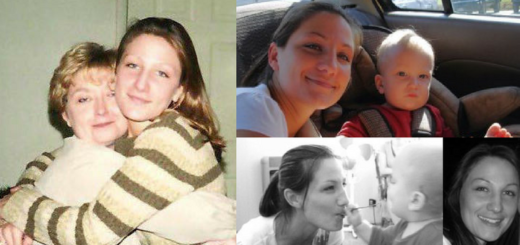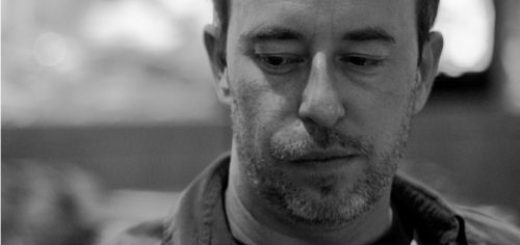Mirrors & Mountains
My phone was on the bathroom counter while I brushed my teeth in front of the mirror. I stood there studying myself in the most mundane and unattractive of moments. My phone lit up with a text message in front of me.
This is how we learn about tragedy today. It was how I learned of the massacre in Las Vegas. It was how I learned my dad died on this day six years ago.
It was how I found out somebody else I knew had killed himself. A guy my age. Seemed to have it all together. Didn’t. Dead.
A few weeks earlier, the note came through Facebook Messenger. It was a kid that time. Dead.
Standing there at the bathroom counter, I started to tally the tragedies again. I kept counting the dead until I couldn’t bear to count anymore. So many people gone with no warning, like a lightning bolt had shot from a sunny sky.
I’ve never enjoyed standing in front of the mirror. Narcissus-a man so enamored by his own reflection that he was imprisoned by it-was meant to be a warning. On the other end of the spectrum, there was once a pro basketball player who shaved in the shower instead of at a bathroom sink. For a few hours a day, he was a star in Boston. The rest of the time, he was a hopeless addict who would score drugs at halftime.
He shaved in the shower because he couldn’t bear to look at himself in the mirror.
The world is different than it was when I was younger. We spend so much time as the subjects of selfies and Snaps that we often convince ourselves that our smile we put on Facebook is the face we wear all the time.
We sometimes do everything we can to avoid looking at our real reflection.
Today I’m asking you to do just that. This will take a few minutes, but I hope the time it takes could change or even save a life.
***
Last month, some colleagues asked me to jot down some thoughts about World Mental Health Day. Their request came not long after my phone had lit up with more bad news. Though already rather overwhelmed with a long to-do list, I put everything aside and started writing. A lot of what you read here was part of what I produced that day. I’d planned for it to remain something a select group of people read. Those plans changed when people started coming up to me privately and thanking me for what I’d written.
The more I thought about it, the more I realized I had to share this. If I didn’t, it would be antithetical to what I’d hoped to convey in the first place:
Silence is killing us.
So, I’m also going to ask you to take some extra time to think about something you might not give enough attention: yourself.
I don’t know how or where you grew up, but when I was young, the society I knew taught us if we were hurt to rub some dirt on it and get on with our day. Fall off your bike and scrape your knee? Rub some dirt on it. Burn your hand on the oven? Dirt. Crippled by depression?
Well, there was no advice for that, because I don’t remember people talking about it at all. Society reserved its talk of mental health for the people they thought “crazy,” and no one wanted to be grouped in with the crazies. At its best, the public discourse about mental health focused on what people sometimes called, “nerves.” If your grandmother was acting differently, you might have heard your mom say, “Grandma’s nerves are acting up.”
In short, the advice was direct and to the point: If you have a problem, deal with it and do it as efficiently as possible, preferably without bothering anybody else. Rub some dirt on it.
While this was an attitude of an earlier era, its ghosts lingered. Even as people began to discuss mental health more openly, it was not always discussed with the kind of compassion you might expect. As recently as a couple of years ago, I had a very smart friend I respected a great deal say to me, “Depression isn’t real. It’s a problem of perspective. If people just decided to be happy, they’d be happy.”
Take a look in the mirror and ask yourself if you’ve ever thought or said something similar. Have you ever privately thought that someone suffering from anxiety or depression was weaker than you because they were having a hard time functioning in the same world as you? What about addiction? Do you see addicts as people who only care about themselves and their own wants? Do you wish people would just try harder to be as happy and content as you?
You don’t have to answer, but I’d ask that you keep reading.
Imagine living in a world where you can’t enjoy anything. Imagine a gravity to your world so heavy that you can’t get out of bed, no matter how hard you try. Imagine being so hobbled by your fear or sadness that you can’t bear the idea of looking anyone in the face. Not strangers. Not coworkers. Not the people you love. Imagine looking for anyone or anything that might help you make it through the day: a one-night stand, a bottle or three of vodka, your rent money on the poker table. Imagine, through no fault of your own, that you contracted this condition like a virus.
Now imagine everyone telling you to rub some dirt on it and get over it. This isn’t the way it should be in today’s world, many people are struggling with some form of mental battle within their head that could disable them for any period of time.
Or, think of it another way: imagine looking at someone with cancer and saying, “Think of it from a different perspective. Look at me. I don’t have cancer, so why should you?”
Or, if neither of those ideas helps you, do this: spend the rest of today looking at every person around you and imagining some of them were terrified that you’d discover they were living with a debilitating illness.
Guess what?
Some of them are.
***
If you’ve read this far, thank you. It wasn’t a test of your humanity as much as it was a simple reminder that sometimes in the hustle and bustle of everyday life, it’s much too easy to look out for people who might need a hand.
You know what’s harder? Figuring out if you might be one of those people.
Listen, we all have bad days. Maybe something makes us feel uncomfortable. Maybe we lost someone close to us. Maybe our job is getting stressful. Bad days happen. Bad months happen. The problem begins when those bad days don’t end when the sun goes down. Or when the weekend comes. Or when you flip the calendar to the next month.
So, you vow to get yourself under control. You go on a diet. You vow to not drink for a month. You put a stop-loss on your gambling. At first, you feel like you’ve beaten the problem you were facing. Sure, you didn’t enjoy it, but you proved to yourself you were in control.
But then something happens. Maybe you go back to the same behavior you were trying to stop in the first place. Or maybe you keep that under control, but you find yourself growing increasingly uncomfortable to the point that you’re not sure you are even yourself anymore. Maybe you feel even worse about things than you did when you were sure you had only an addiction problem.
There is a lot of fear associated with that moment. The walls start to close in. You get angry or sad or scared. You are afraid people can see what you’re feeling, so you isolate yourself from your friends and family and try to figure it out on your own.
It might spiral from there. Your isolation can lead to loneliness and a feeling that nobody could possibly understand what you’re feeling. You feel broken, and you can’t think of any way to fix yourself. Because you have isolated yourself, there is no one there to tell you it will be okay. Left to believe things will never be fine again, your mind can go to some very dark places.
It doesn’t always go that way. No condition is exactly the same. Anxiety, depression, and all of their kin find a way to exist and mutate in ways that will make you think that feeling uncomfortable or miserable is just who you are. It’s often difficult to even put your finger on exactly why you feel off. It’s ethereal and impossible to explain, almost to the point that you’ll wonder if it even exists. Singer-songwriter Jason Isbell recently described anxiety like this:
It’s the weight of the world
But it’s nothing at all
Maybe you never self-medicated with anything and just accepted that your life will always feel like trying to swim in heavy clothes. You’ve decided that you are meant to be broken, and there is no use in believing otherwise. Or maybe you tried to tell someone, and it didn’t go well. Maybe they said, “Have you considered just trying to be happy?”
And so here you are, wondering if there is anywhere to go from here, wondering if you will always feel sideways, wondering if you have to feel so alone.
If you are, if any of the above sounds even vaguely familiar to you, I’m going to ask you to do me a huge favor.
Please tell someone.
Finding a person to tell may end up being the hardest part of getting better. It’s possible you’re afraid of seeming weak. You might think you’re not worth taking up someone’s time. You could be scared of getting fired, worrying your family, or of becoming an outcast. Those fears might seem overpowering. To get over them, I offer you this:
What if you could feel as good as you feel bad right now? What if your daily misery became daily happiness? What if the real you-the one you’ve always aspired to be but couldn’t because you are anxious or depressed-could just appear and help you realize your dreams?
If those things were possible, could you get over your fear just long enough to tell one person? I hope you could.
It’s a first step of several you may have to take. You might need to find a therapist. You might need to find a doctor. You might need to take medicine. It won’t happen overnight, but if you take that first step, you may find a whole new life you couldn’t believe existed.
***
Though you might have come this far just as a favor to me, there was no one forcing you to do it. You didn’t have to cross the 2,000-word threshold, but you did, and there is a reason for that. Something rang true for you.
If you have two more minutes, let me offer one more story.
There is a person I know and admire a great deal. He was successful beyond all of his expectations. He rose far above where most people in his profession had. He was on top of the world. He had a great career, a beautiful girlfriend, tons of friends, and enough fame to last him a lifetime. For everyone watching from the outside, his life was pretty much perfect.
But something wasn’t right. He felt off. The world seemed darker than it should. He decided to quit drinking, sure that it would right his ship. For a while it did, but then the relationship with his girlfriend went south, and he began to spiral. He ended up alone in a very dark place. Late one night, he posted on Twitter that he thought he might be better off dead.
His Twitter replies began to fill up with people who wondered if he was being serious and begging him to reply. His DMs began to buzz.
And then there was nothing. His Twitter account stopped updating.
What happened?
Within an hour, there was a friend with him in his flat ready to talk until morning. What happened there was private, but there are two things that are 100% true:
That man let someone know he was hurting.
And someone came to help.
That man recently climbed a gigantic mountain with two friends. He had seen the bottom, and now he was on top of the world again.
***
I had a chance to chat with that friend for a second today. He’s still fighting. He’s getting better. He’s working on a new future.
That makes me happy. It gives me hope. It reminds me that I have a lot of other friends who have not yet found a way to say aloud, “Something is wrong.”
We’re living in a sideways time right now. Nothing makes sense. It’s isolating and scary. Some days it might seem easier just to ride out the day and hope the next day is better.
As I see it, the only way we-all of us-get better, is if we take a long look in the mirror and decide if it’s time to stop rubbing dirt on it.
Do what you can. Donate your money. Donate your time. Advocate for mental health causes. Talk about them honestly. Be kind.
Or, perhaps you will do something even greater.
If you know someone who might need help, reach out and let them know you are there.
If you think you might need help, try to find someone to tell. It won’t be easy, but it could change your life.
And if you can’t find anyone who will listen, or you can’t find anyone you feel safe telling, I promise you there is at least one person who can get you started.




Well said Brad. You’re compassion is clear and so is your point.
Mental illness is an illness. There is help.
And there are people who care.
Thanks for writing this.